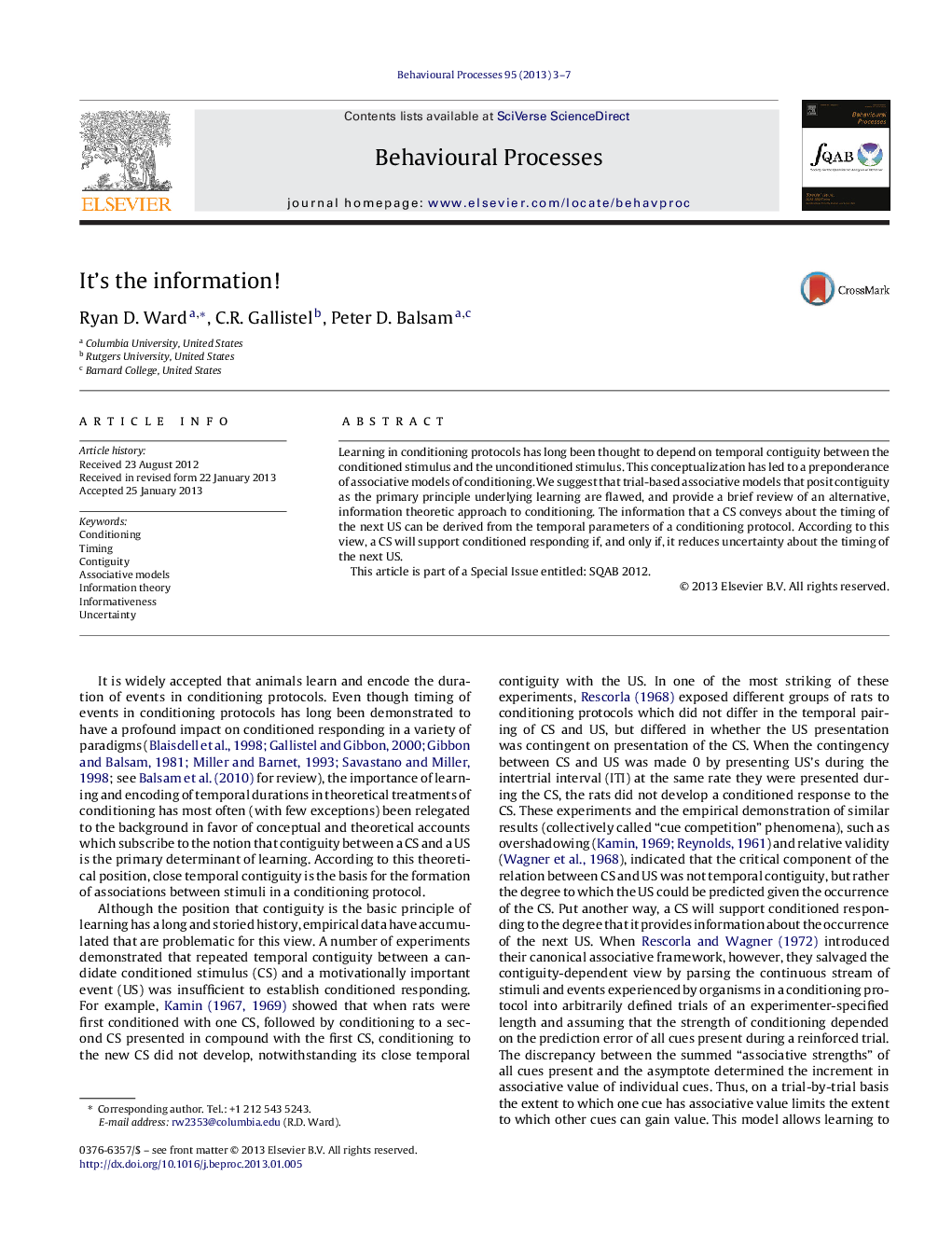| Article ID | Journal | Published Year | Pages | File Type |
|---|---|---|---|---|
| 2426847 | Behavioural Processes | 2013 | 5 Pages |
Learning in conditioning protocols has long been thought to depend on temporal contiguity between the conditioned stimulus and the unconditioned stimulus. This conceptualization has led to a preponderance of associative models of conditioning. We suggest that trial-based associative models that posit contiguity as the primary principle underlying learning are flawed, and provide a brief review of an alternative, information theoretic approach to conditioning. The information that a CS conveys about the timing of the next US can be derived from the temporal parameters of a conditioning protocol. According to this view, a CS will support conditioned responding if, and only if, it reduces uncertainty about the timing of the next US.This article is part of a Special Issue entitled: SQAB 2012.
► Temporal contiguity between a conditioned stimulus and an unconditioned stimulus is insufficient as an explanation for learning in conditioning protocols. ► An analysis of conditioning protocols based on information theory provides an alternative to contiguity-based accounts. ► An informational analysis states that a CS will support conditioned responding if it reduces uncertainty about the timing of the next US.
